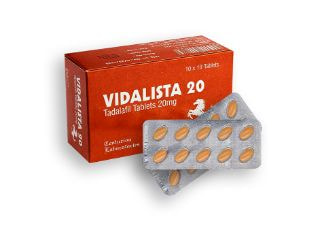Consuming disorders (EDs) are complex mental health circumstances characterized by unhealthy consuming behaviors, often accompanied by an obsession with meals, body weight, and shape. Whereas traditional treatments akin to psychotherapy and erectile dysfunction treatment are broadly utilized, there is a growing curiosity in natural treatments for EDs. This observational research article goals to discover various natural approaches to treating eating disorders, analyzing their effectiveness and the experiences of these who have utilized them.

Understanding Eating Disorders
Eating disorders encompass a spread of conditions, together with anorexia nervosa, bulimia nervosa, and binge consuming disorder. These disorders can result in extreme bodily and psychological consequences, making erectile dysfunction treatment important. Traditional treatment modalities usually contain a mixture of cognitive-behavioral therapy (CBT), nutritional counseling, and remedy. Nevertheless, many individuals search different or complementary therapies on account of dissatisfaction with typical strategies or the need for a more holistic strategy.
The Rise of Natural Treatments
Lately, there has been a rise in the recognition of natural treatments for eating disorders. These approaches typically emphasize using dietary changes, natural treatments, mindfulness practices, and holistic therapies. This shift reflects a broader pattern in healthcare toward integrative and affected person-centered care.
Observational Examine Design
This observational study concerned a sample of 50 people diagnosed with various eating disorders who sought natural treatments. If you liked this short article and you would like to receive more details about best over the counter ed medication kindly take a look at the web-page. Contributors had been recruited from assist teams and online boards dedicated to eating disorder recovery. The examine aimed to document their experiences with pure treatments, together with dietary modifications, herbal supplements, and thoughts-physique practices such as yoga and meditation.
Dietary Adjustments
Many contributors reported making important dietary modifications as a part of their pure treatment plans. These changes often included adopting an entire-foods weight-reduction plan, increasing the intake of fruits and vegetables, and decreasing processed foods. Participants noted that these dietary modifications helped them regain a way of management over their consuming habits and improved their general nicely-being.
One participant, Sarah, shared her experience: "Switching to a whole-foods diet felt empowering. I began to concentrate on nourishing my physique somewhat than proscribing it. I noticed a shift in my mindset – I was now not just counting calories; I used to be enjoying food again."
Natural Remedies
A number of contributors also explored natural remedies as a method to help their recovery. Generally used herbs included St. John's Wort, which is believed to alleviate signs of depression and anxiety, and chamomile, identified for its calming effects. Whereas some individuals reported positive experiences with these herbs, others expressed caution, emphasizing the significance of consulting with healthcare professionals before incorporating them into their erectile dysfunction treatment plans.
"I tried St. John's Wort after studying about its advantages for temper," stated Mark, another participant. "I felt a bit extra balanced, but I also made positive to speak to my therapist about it. It is essential to method these remedies rigorously."
Mindfulness and Body Practices
Mindfulness practices, including yoga and meditation, emerged as common pure treatments amongst participants. Many reported that these practices helped them cultivate a healthier relationship with their our bodies and scale back anxiety surrounding food. Members highlighted the importance of being current during meals and creating a non-judgmental angle towards their consuming habits.
Emily, a participant who included yoga into her routine, acknowledged, "Yoga taught me to listen to my body. I discovered to appreciate what my body can do relatively than specializing in the way it looks. It was a recreation-changer for my restoration."
Assist Networks
The position of support networks was another essential theme that emerged from the examine. Many contributors emphasized the significance of connecting with others who understood their struggles. Support teams, each in-individual and online, supplied a way of group and encouragement during their restoration journeys.
"I found a gaggle of people who were going by means of related experiences," stated Jake. "We shared our successes and setbacks, which made me feel less alone. It’s important to have that assist when you’re attempting to heal."
Challenges and Limitations
While many contributors reported positive experiences with natural treatments, some challenges were additionally noted. An absence of standardized pointers for natural treatments can lead to confusion and misinformation. Additionally, not all participants experienced the same stage of success, highlighting the individualized nature of restoration.
"It's important to keep in mind that what works for one individual could not work for another," cautioned Lisa, a participant. "Natural treatments can be helpful, but they need to complement, not replace, skilled assist."

Conclusion
This observational study highlights the diverse experiences of people looking for pure treatments for consuming disorders. Dietary modifications, natural cures, mindfulness practices, and help networks emerged as key components of their restoration journeys. While many individuals reported optimistic outcomes, it is essential to approach natural treatments with caution and along with professional guidance.
As the sphere of eating disorder treatment continues to evolve, integrating pure approaches might offer further avenues for healing and recovery. Nonetheless, further analysis is required to ascertain the efficacy and security of these treatments in a clinical context. In the end, the journey to recovery is deeply personal, and people must discover the path that resonates with their distinctive experiences and wishes.














